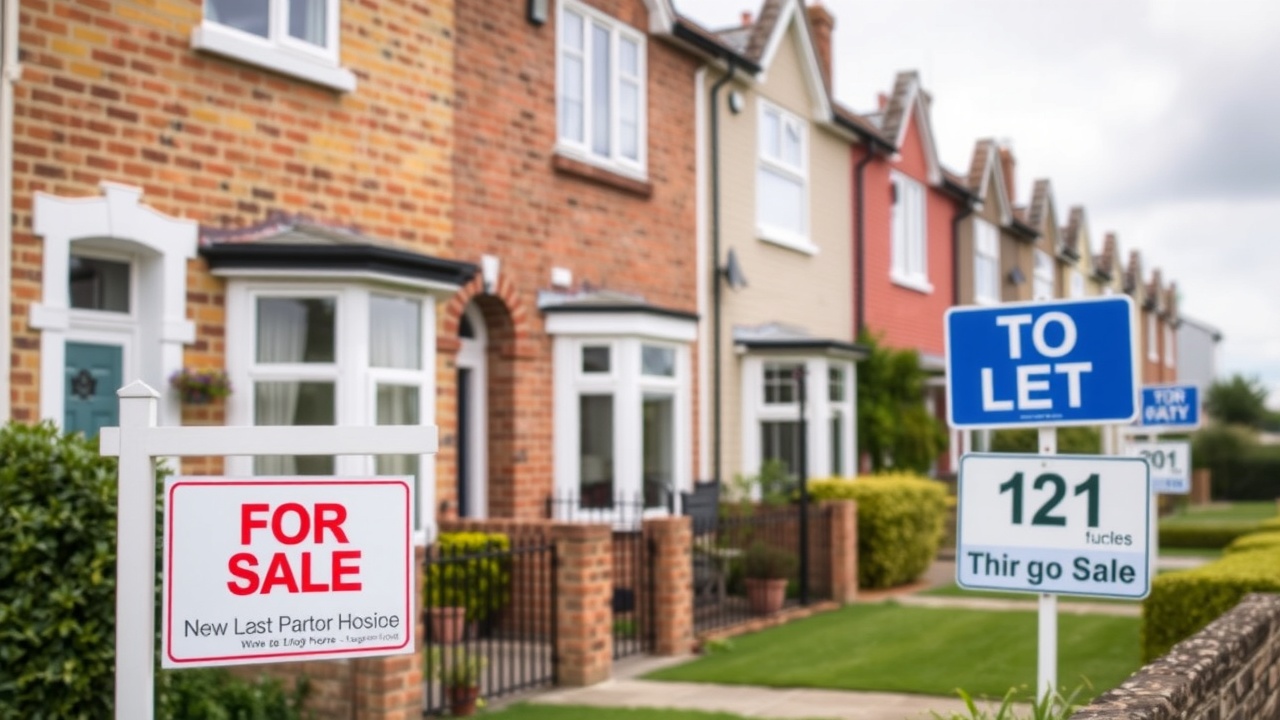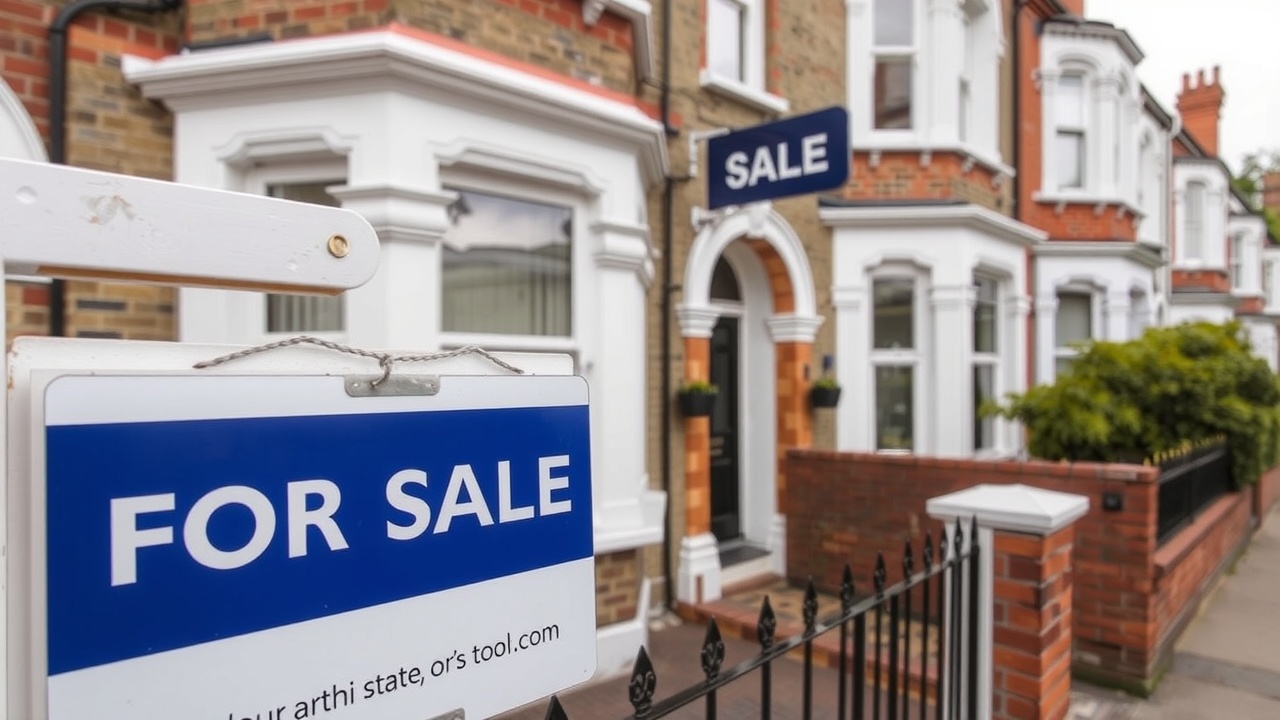
The approaching stamp duty deadline may help house prices, which rebounded in 2024
In 2025, will home prices increase or decrease?
A busy few months are ahead for the housing market as buyers try to take advantage of the April stamp duty threshold changes. It will probably be a two-part year, though, with a slowdown in the housing market following those changes, which will raise the price of purchasing a home.
Data on home prices is currently showing resilience. Prices rose by 4 points 6 percent in 2024, according to the most recent report from HM Land Registry, which was released on February 19. As a result, the average price of real estate is now 268,000, 12,000 more than it was a year earlier. 1.
In 2025, interest rates are predicted to continue to decline, and the Bank of England may lower rates three more times before the year ends. For mortgage rates, this would be positive. Even so, there are still issues with affordability.
Recent data from Nationwide indicates that the average first-time buyer is paying roughly five times their salary for their first home, and borrowing costs are still much higher than their long-term average. Three times earnings is the long-term average.
Additionally, there is still uncertainty surrounding the inflation outlook, and any unexpected increases in data could lead to a slight increase in mortgage rates. For instance, January's inflation data, which was released on February 19, was higher than anticipated, which led to volatility in the swap rates that support mortgage pricing.
A larger supply of housing stock may also cause the rate of increase in home prices to slow later this year. The number of homes for sale appears to be at a 10-year high, according to data released in February by the real estate website Rightmove.
After a strong start to the year, new sellers are displaying some pricing restraint, according to Colleen Babcock, a property expert at Rightmove. This is because they are aware of the intense competition among sellers as well as the impending stamp duty deadline in England and the additional expenses that some buyers may incur.
According to agents, some of the pressure is coming from new sellers who are adjusting their prices to reflect the shifting market conditions. This is a reasonable response to draw in buyers and will also support activity levels.
1Notably, the most recent report re-referenced official data "to reflect the observed reduction in size of the average UK property sold and its increased tendency to be in a cheaper part of the UK." As a result, the average home price figure is lower than the £290,000 figure from the previous month's report.
What's going on with the prices of sold homes?
The best way to predict the state of the UK real estate market is to look at sold house prices, and the most reliable source is HM Land Registry.
The sole disadvantage is that the transactions that this index tracks might have been finalized months ago. It is therefore not always a reliable indicator of the state of the market.
Although this is based on the lender's assessment at the mortgage approval stage, major lenders such as Halifax and Nationwide also release reliable house price data. Although this may not match the sale price, the idea is that it is close enough to the end of the home-selling process to provide a more accurate picture than the asking price at the beginning.
Additionally, the real estate website Zoopla releases a house price index based on data from agreed sales, mortgage valuations, and sold prices. In a different post, we examine the best house price index in more detail.
What is shown in the most recent reports?
HM Land Registry: In December, the annual increase in house prices was 4 points 6 percent. The January report is not yet accessible. In January, the country's house prices rose 4.1 percent annually. Halifax: In January, the annual increase in house prices was 3.1 percent. Zoopla: In December, house prices rose 2.1 percent annually. The report for January is still unavailable. Of course, there are significant regional differences, but you can learn more about how prices have changed in your borough or local authority area by using the Office for National Statistics' "house prices in your area" report.
In general, Northern Ireland is experiencing the fastest rate of price growth (9point 0 percent), followed by Scotland (6point 9 percent), according to the most recent report from HM Land Registry. The North East is growing at the fastest rate among the English regions (6.7%).
In contrast, London's home prices ended 2024 at the same level as they began, with no increase in 2024. The average house in London now costs nearly £549,000. Prices are especially high there. This implies that affordability constraints have been exceeded.
Do real estate asking prices increase?
As of right now, asking prices serve as a helpful indicator of market sentiment. These snapshots are typically released just a few weeks following the collection of the data. The disadvantage is that asking prices don't always match the price at which a product is sold.
Based on asking prices, Rightmove's house price index indicates that during the first few weeks of February, house prices rose by 0.5 percent on a monthly basis, which is less than the 0.8 percent average for this time of year. Compared to the previous year, prices increased by 1.4 percent.
"This month's downward price trend seems to be a response to the record number of sellers who entered the market early in 2025, as well as a proactive measure, acknowledging higher costs for some buyers with England's impending stamp duty deadline at the end of March," the real estate website explains.
Will the cost of homes increase in 2025?
Changes in stamp duty may reduce buyer demand starting in April after increasing activity in the first three months of the year. First-time buyers will see a decrease in the tax-free threshold from 425,000 to 300,000, and from 250,000 to 125,000.
Interest rates should also be monitored. Markets were only anticipating two cuts at the beginning of this year, but they are now beginning to accept the possibility that the Bank of England may act more quickly. Through 2025, economists at firms like ING and Goldman Sachs anticipate about one cut every three months.
This outlook does have some risks, though, such as the potential for widespread tariffs imposed by US President Donald Trump to accelerate global inflation. An increase in energy costs may also fuel the flames. Here in the UK, adjustments to employers' National Insurance contributions that take effect in April may also cause inflation to rise.
Inflation is expected to briefly reach 30.7 percent in the third quarter of this year, according to the Bank of England. The extent of interest rate reductions may be constrained if inflation increases excessively, which could also hurt household budgets and the housing market by raising mortgage rates.
The real estate firm Knight Frank has stated that it anticipates a 2 percent increase in home prices in 2025, a 3 percent increase in 2026, and a 3 percent increase in 2027. Meanwhile, Savills, an estate agency, has forecast a 4% increase in UK home prices in 2025.
The data will, of course, vary by region. Savills anticipates that the north-south gap in home price growth will persist, with prices increasing more slowly in places like London where affordability has reached a breaking point.
According to the real estate agency, house prices in Yorkshire and the Humber, Scotland, the North West, and the North East are expected to rise by 50.0 percent in 2025. Price increases in the South West and East of England are only expected to be 2.5 percent over the course of the year.
Lastly, the agency stated that as investors are impacted by additional stamp duty charges (like the 5 percent surcharge on second homes) and modifications to non-dom regulations, the value of high-end properties in London is expected to decline by 4%.














Leave a comment on: How are house prices in the UK? An explanation of recent changes in the real estate market